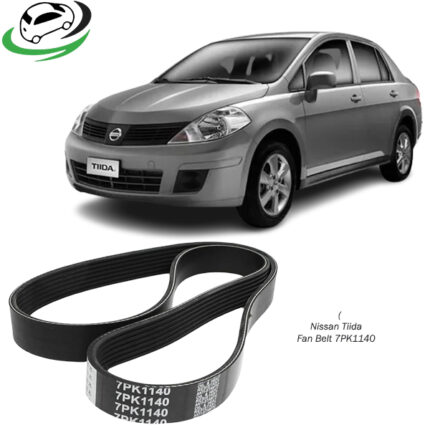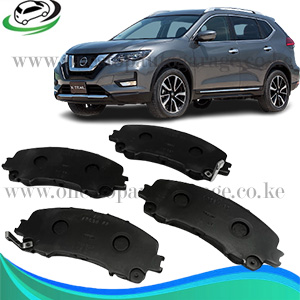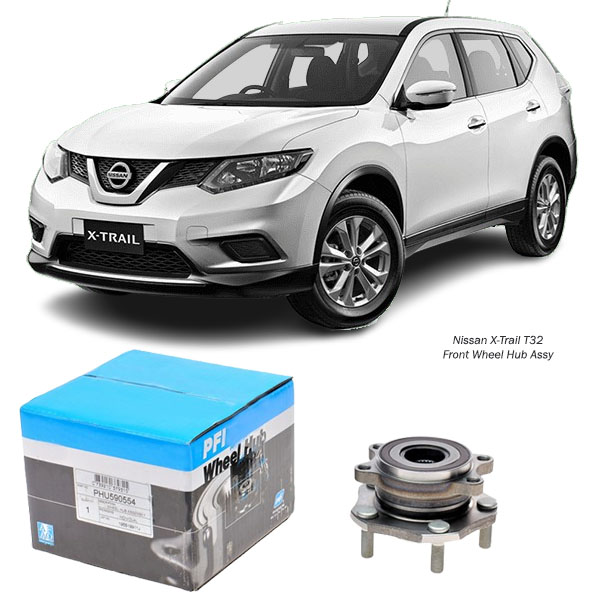-8%
Get Nissan X-Trail T32 Front Wheel Hub Assy PHU590554 in Kenya
Hidden just behind your front wheels lies one of the most essential parts of your vehicle’s mobility and safety — the Front Wheel Hub Assembly. While it doesn’t get the spotlight often, this component is literally the point where everything spins into motion. It’s a core structural and mechanical hub (pun intended!) that makes steering, braking, and acceleration possible — quietly doing its job every time you hit the road. 🚦🛣️
🧠 What Is the Front Wheel Hub Assembly?
The Front Wheel Hub Assy is a pre-assembled unit that contains all the parts needed to allow the front wheels to rotate freely and securely, while also supporting braking, steering, and suspension systems.
Think of it as the central docking point that connects the wheel to the axle and supports its smooth rotation. It’s where power, motion, and safety all meet. ⚙️🧷
This assembly often includes:
-
The hub itself (main rotating component)
-
Wheel studs (where the wheel bolts onto)
-
A bearing assembly (for smooth, low-friction rotation)
-
In some setups: an ABS sensor ring (for vehicles with ABS)
🧱 Key Components of the Hub Assy
Each part within the hub assembly plays a crucial role:
-
Wheel Hub – The base of the assembly, it mounts the wheel and rotates along with it
-
Wheel Bearings – Reduce friction and allow for smooth spinning under load
-
Wheel Studs/Bolts – Protruding bolts that hold the wheel in place via lug nuts
-
ABS Tone Ring (if equipped) – Communicates with the anti-lock braking system
-
Mounting Flange – Connects to the steering knuckle or suspension arm
These components are often sealed together in a one-piece, maintenance-free unit, making installation and replacement more efficient. 🔧🧊
🔁 What Does It Do?
The Front Wheel Hub Assy isn’t just about spinning — it’s about precision, safety, and alignment. Here’s what it does:
-
🛞 Supports the weight of the vehicle at the wheel location
-
⚙️ Allows the wheel to rotate smoothly on the bearings
-
🧭 Maintains the correct alignment for safe steering
-
🛑 Transmits braking forces from the rotor to the chassis
-
🎯 Holds the wheel and brake disc securely in position
Everything from your cornering grip to your brake feel is tied to how well your hub assembly functions. It’s the quiet MVP under every ride. 💯🏁
🧊 How It Works in Motion
-
As power flows from the drivetrain to the axles, it reaches the hub
-
The hub spins, with the wheel and brake disc mounted on it
-
The sealed bearings inside the hub reduce friction, even under load
-
The ABS ring (if present) sends wheel speed data to the control unit
-
Braking force is absorbed through the rotor, transferred through the hub into the suspension
-
Everything stays aligned — steering stays sharp, braking stays solid 💥
That’s a lot of responsibility for one component — which is why wear and tear can become a real issue if not addressed early. 🛠️
📉 Signs of a Worn or Failing Hub Assy
Over time, constant rotation, heat, moisture, and impact from rough roads can wear down the hub or its bearings.
Here’s what to watch (or listen) for:
-
🎧 Grinding or humming noise from the wheel area
-
🚨 ABS warning light (if ABS sensor is integrated)
-
🫨 Vibration through the steering wheel, especially when turning
-
🧭 Loose or wandering steering
-
🛞 Wobbling wheel or uneven tire wear
-
🛑 Clunky noises when braking or accelerating
Driving with a bad hub can affect alignment, damage suspension, and even lead to a wheel coming loose in extreme cases — not a risk worth taking. 🚫🔧
🔧 Why It Matters for Driving Safety
-
⚖️ A healthy hub ensures wheel alignment and balance
-
🔄 It reduces rolling resistance and bearing heat
-
🚗 It keeps braking force evenly distributed
-
🛡️ It supports ABS function and traction control
In short: It’s your first line of defense against wheel failure, poor handling, and unsafe braking. Every bump, every corner, every emergency stop — your hub is right there, doing the work. 💪🧠
🔁 When to Replace It?
-
On average, hub assemblies last 100,000 to 160,000 km, depending on driving conditions
-
Off-road use, heavy loads, or water exposure can reduce lifespan
-
If noise or wobble is present, replacement is urgent
-
Always replace both front hubs as a pair to maintain alignment and balance
Using a quality OE-spec hub ensures proper fitment, bearing performance, and ABS integration (if applicable). ⚙️✅
⚙️ What to Expect in Replacement
Installing a new hub assembly involves:
-
Lifting and securing the vehicle
-
Removing the wheel, brake caliper, and rotor
-
Detaching the old hub assembly from the steering knuckle
-
Cleaning the mating surfaces
-
Bolting in the new hub with torque specs
-
Reassembling everything and testing alignment and wheel speed sensor if needed
It’s a mechanically precise job, but one that makes a huge difference in how the vehicle feels and performs immediately. 🧰🛞
🌍 Ideal Conditions for Maintenance
Hubs face more stress in certain environments:
-
🌧️ Wet, muddy, or sandy roads can damage bearing seals
-
🛤️ Rough roads create impact force that weakens bearings
-
🏗️ Urban stop-and-go traffic causes more heat buildup
-
🏋️♂️ Heavy loads add pressure on rotating joints
In these conditions, regular inspections and timely replacement are key to keeping everything rolling safely. 🛡️🚗
🌟 Benefits of a Healthy Hub Assembly
-
🧈 Smooth, quiet wheel rotation
-
🧭 Stable and responsive steering
-
🛞 Improved tire wear and alignment
-
🛑 Consistent braking feel
-
⚙️ Better fuel efficiency (less drag)
-
🧠 Proper ABS function and safety control
-
🔩 Reliable connection between wheel and suspension
It’s not just about fixing a part — it’s about restoring the smoothness, precision, and confidence in every journey. 🌈
💬 Final Thoughts
The Front Wheel Hub Assembly may be a hidden component, but it’s an essential cornerstone of every drive — ensuring your wheels stay in place, your brakes respond on time, and your steering stays tight.
If you’re feeling a wobble, hearing an odd hum, or sensing loose handling — it’s probably time to take a closer look. Replacing a worn hub isn’t just a fix… it’s peace of mind on four wheels.
Follow us on Facebook for more parts.



